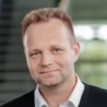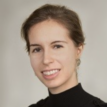General presentation
Title: Workshop Metabolism and mathematical models: Two for a tango – 3rd Edition
Dates: November 14-15, 2023
Location: This workshop will be held in a virtual way
The topic of this workshop is metabolism in general, with a special focus, although not exclusive, on parasitology. Besides an exploration of the biological, biochemical and biomedical aspects, the workshop will also aim at presenting some of the mathematical modelling, algorithmic theory and software development that have become crucial to explore such aspects.
This workshop is being organised in the context of two projects, both with the Inria European Team Erable. One of the projects involves a partnership with the University of São Paulo (USP), in São Paulo, Brazil, more specifically the Institute of Mathematics and Statistics (IME) and the Institute of Biomedical Sciences – Inria Associated Team Capoeira – and the other involves the Inesc-ID/IST in Portugal, ETH in Zürich and EMBL in Heidelberg – H2020 Twinning Project Olissipo.
The workshop is open to all members of these two projects but also, importantly, to the community in general.
Keynote lecturers

Barbara Bakker (Faculty of Medical Sciences, University of Groningen, The Netherlands)
Title talk: Digital twins: a personalised systems medicine approach for metabolic disease
Short abstract: Each patient is unique. Even siblings with the same pathogenic genotype may differ vastly in disease presentation and treatment response. Computational models of metabolic networks, so-called ‘digital twins’, may give insight into disease mechanisms and identify putative sources of inter-patient heterogeneity. In the talk, I will focus on the mitochondrial fatty-acid beta-oxidation (mFAO) and its interplay with vitamin and cofactor metabolism. Although the reactions and enzymes in the pathway have been known for decades, its dynamic regulation is not well understood. Deregulation of mFAO plays a pivotal role in many diseases, including age-related multifactorial diseases, such as diabetes, but also rare, inherited enzyme deficiencies. We therefore embarked on a systems biology program, combining wet-lab biochemistry, stable-isotope fluxomic, targeted proteomics, patient cell and organoid cultures, and patient-specific computational models.

Igor Cestari (Institute of Parasitology, McGill University, Montréal, Canada)
Title talk: Nuclear signaling and antigenic switching in trypanosomes
Short abstract: Soon available

Vassily Hatzimanikatis (École Polytechnique Fédérale de Lausanne (EPFL), Lausanne, Switzerland)
Title talk: One method does not fit all: A Hierarchy of Modelling and Computational Methods for Metabolic Analysis and Design
Short abstract: Mathematical models are used in all fields of science and engineering to analyze and design complex and intricate systems. They have been used extensively in the study of metabolism. However, different modeling frameworks and computational methods must be tailored to study different questions and problems. Therefore, a hierarchy of models and computational methods for metabolic systems exists. We will consider three main problems: (i) the reconstruction of genome-scale metabolic networks and the identification of novel pathways for the biosynthesis of non-biological chemicals; (ii) the integration of omics information for the quantitative analysis of metabolic fluxes in large-scale and genome-scale metabolic networks; and (iii) the identification of rate-limiting steps in metabolic pathways for metabolic engineering and the treatment of metabolic diseases. For each of these problems, we will present the relevant modeling and computational methods and discuss the challenges and opportunities for future developments.

Steffen Klamt (Max Planck Institute for Dynamics of Complex Technical Systems, Magdeburg, Germany)
Title talk: Network-wide thermodynamic constraints shape NAD(P)H cofactor specificity of biochemical reactions
Short abstract: NADH and NADPH are redox cofactors coexisting in all living cells. Here, we present a computational study suggesting that evolved NAD(P)H reaction specificities in E. coli are largely shaped by metabolic network structure enabling maximal thermodynamic driving forces close to the theoretical optimum.

Ina Koch (Goethe Universität, Frankfurt am Main, Germany)
Title talk: Bipartite graphs for computational modeling in systems biology: from KEGG to Petri nets
Short abstract: Computational modeling of biological systems at different levels of abstraction demands specific data structures. Interestingly, the use of bipartite graphs can be found as a data structure from the beginning (KEGG) until new developments in the field. We will consider Petri nets as a mathematical formalism to predict the system’s properties and dynamic behavior without knowing any kinetic parameters. In the lecture, we introduce the foundations of Petri net formalism and some analysis techniques to explore specific properties. Petri nets can be applied to model metabolism, signaling transduction, and gene regulation. For illustration, we give small case studies. Finally, we will discuss new ideas for the combination of agent‐based modeling to connect signaling with metabolism.
Short bio: Ina Koch studied chemistry and did her diploma’s thesis in quantum chemistry at the University of Leipzig. She received her Ph.D. in the field of theoretical computer science with the topic “A graph-theoretical application of the pairwise and multiple alignments of protein structures”. Ina Koch has been working at different places, among them the Max Delbrück Center in the group of Jens Reich and the Max Planck Institute for Molecular Genetics in the group of Martin Vingron. Since 2010 she has held a full professorship in bioinformatics at the Goethe University Frankfurt. Her research has been dedicated to different topics, ranging from the investigation of protein structure topology using graph theory to the analysis of SNPs and alternative splicing, and, in the last years, more and more to the analysis of biochemical systems. For about 20 years, Ina Koch has been applying Petri nets to model biochemical systems, including metabolic systems, signal transduction pathways, and gene regulatory networks. Ina Koch was the spokesperson of the Fachgruppe Bioinformatik (FaBI) and is a member of the DFG review board “Foundations in Biology and Medicine”, as well as a member of several Scientific Advisory Boards.

Laura-Isobel McCall (San Diego State University, US)
Title talk: Metabolism in a 3D environment: chemical cartography of Chagas disease
Short abstract: Chemical cartography is the spatial analysis of metabolic changes in tissue. In this talk, I will discuss how chemical cartography enables insights into the determinants of cardiac and gastrointestinal Chagas disease tropism and of treatment efficacy.
Short bio: Laura-Isobel McCall, PhD, is an Associate Professor of Chemistry and Biochemistry at San Diego State University. There, she focuses on using spatially-resolved metabolomics to understand host-pathogen-microbiome interactions, to guide drug development and biomarker discovery.
Discussions on open questions
For this third edition of the workshop, besides the keynote talks, there will be also two slots, one per day, for a discussion on two specific open questions. Each one will be managed and moderated by invited researchers.
For this edition, the open questions and invited researchers will be:
- Discussion 1:
- Question: There are many databases related to metabolism, and there are for a given organism, many metabolic networks that have been reconstructed that provide different and not always compatible information. How could the community address these issues?
- Moderators: Ariel Silber, Gabriela Torres Montanaro (USP), Mariana Galvão Ferrarini (Inria), Marie-France Sagot, and Mayke Bezerra Alencar (USP)
- Discussion 2:
- Question: What further constraints could be integrated in stoichiometric models, going beyond mass balances, flux bounds, thermodynamic constraints and resource (including enzyme) allocation constraints?
- Moderators: Ariel Silber, Gabriela Torres Montanaro (USP), Mariana Galvão Ferrarini (Inria), and Marie-France Sagot
Program
In order to cover a larger audience, the workshop will take place in the afternoon, CET time (French time), on both days.
| Tuesday 14 | Wednesday 15 | |
| 14h00-14h10 CET time | Introduction to the workshop | Introduction to the second day |
| 14h10-14h40 CET time | Talk 1: Ina Koch | Talk 4: Barbara Bakker |
| 14h40-14h55 CET time | Questions and discussion on Talk 1 | Questions and discussion on Talk 4 |
| 14h55-15h05 CET time | Short break | Short break |
| 15h05-15h35 CET time | Talk 2: Vassily Hatzimanikatis | Talk 5: Steffen Klamt |
| 15h35-15h50 CET time | Questions and discussion on Talk 2 | Questions and discussion on Talk 5 |
| 15h50-16h00 CET time | Short break | Short break |
| 16h00-16h30 CET time | Discussion 1 | Discussion 2 |
| 16h30-17h00 CET time | Talk 3: Igor Cestari | Talk 6: Laura-Isobel McCall |
| 17h00-17h15 CET time | Questions and discussion on Talk 3 | Questions and discussion on Talk 6 |
| 17h15-17h30 CET time | Final discussion and conclusion of the first day | Final discussion and conclusion of the workshop |
Registration
Registration is free but mandatory. To register, go to this link.
Organisation
Marie-France Sagot, Inria, CNRS and University of Lyon 1 UMR 5558, France
Ariel M. Silber, Department of Parasitology, Institute of Biomedical Sciences, University of São Paulo (USP), São Paulo, Brazil
Sara Tanqueiro, Project Manager of the H2020 Twinning project Olissipo
Susana Vinga, Instituto Superior Técnico and INESC-ID, Lisbon, Portugal, and coordinator of the H2020 Twinning project Olissipo
Participants
Information on the participants will be made available later.
Funding
The Inria Associated Team Capoeira has received funding from Fapesp in Brazil and from Inria in France.
The H2020 Twinning Project Olissipo has received funding from the European Union’s Horizon 2020 research and innovation programme under grant agreement No 951970.
One of the organisers of the workshop, Ariel M. Silber, is also supported by the project “A Global Network fo Neglected Tropical Diseases” of the GCRF-UKRI research programme.


